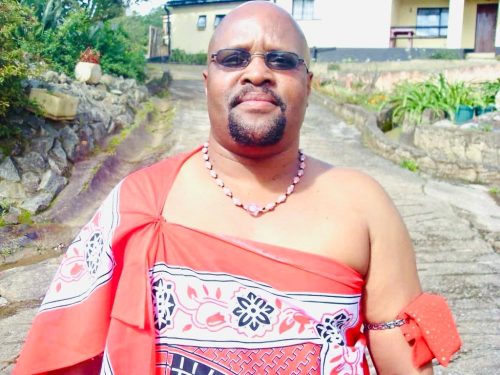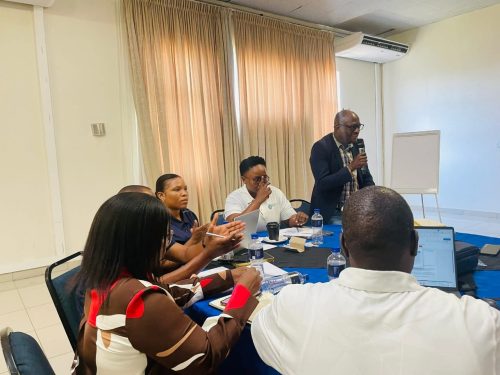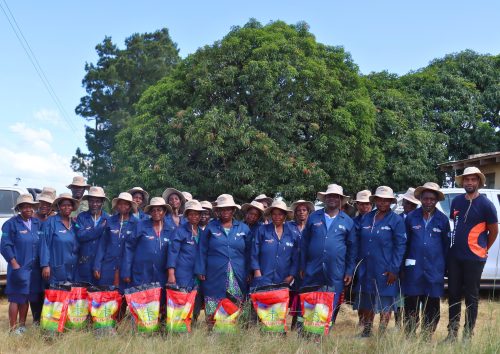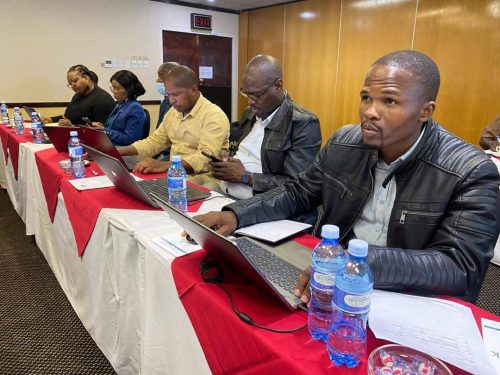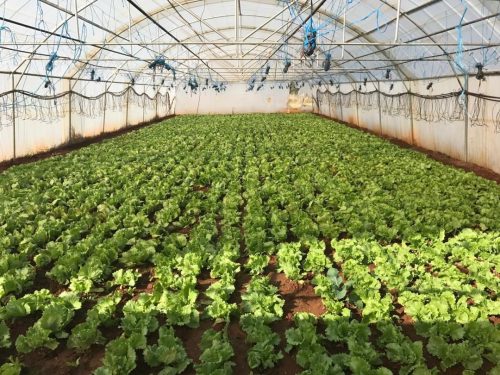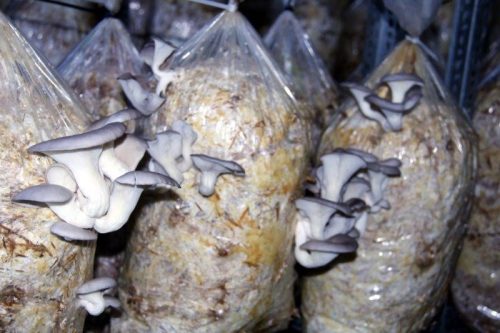BY PHESHEYA KUNENE – EDITOR
SHISELWENI – In the rolling hills of Sandleni and Methula, hope is sprouting where the soil once cracked under the strain of drought.
The Baphalali Eswatini Red Cross Society (BERCS), in partnership with the British Red Cross through the Enhancing Livelihoods in the Sub-Saharan Africa (ELISSA) Project, has launched an initiative designed to strengthen small-scale farmers and aspiring growers against the mounting challenges of climate change.
At the heart of this programme lies a simple yet transformative idea, empowering people not through handouts, but through tools for resilience.
On Tuesday, 300 vulnerable households gathered at an Encashment Day in Sandleni Inkhundla, each receiving E2 000 in cash vouchers to purchase seeds, fertilizers, and farming inputs of their choice.
For many, this was more than financial aid; it was a lifeline.
Dr. Elliot Jele, Acting Secretary General of BERCS, said the initiative marks a critical step in supporting Eswatini’s most climate-affected communities.
“We’ve seen how unpredictable weather patterns continue to affect food production and livelihoods. Through this programme, we are not just giving people the means to farm, but helping them build resilience, independence, and confidence in their ability to adapt,” he said.
He added that the project’s focus on climate-smart agriculture aligns with Eswatini’s broader national goal of promoting sustainable farming methods.
“Our vision is to create communities that can withstand climate shocks and still thrive. We believe that when you empower a household to grow its own food, you are empowering a nation to feed itself.”
Before receiving the vouchers, beneficiaries underwent training sessions on Climate-Smart Agriculture (CSA), learning to cultivate drought-tolerant crops, manage soil and water sustainably, and adopt techniques that reduce environmental degradation.
For residents like Thokozani Hlophe, a 33-year-old father of three from Sandleni, the project is nothing short of a new beginning.
“I’ve always loved farming, but it was difficult to start with no resources,” he shared. “Now I can buy seeds and tools to plant again. I want to use this opportunity to change my life, feed my children, and one day employ others.”
Beyond individual households, the initiative is also sowing seeds of knowledge. The Red Cross, under the same ELISSA framework, also rolled out a three-day training programme (October 22–24, 2025) at Bethel Court, bringing together community leaders from Nkhungwini, Tibondzeni, Mbangweni, and Nkomonye chiefdoms in the Shiselweni region.
The training, supported by the British Red Cross, equips leaders with expertise in land and water management, erosion control, deforestation prevention, and wetland preservation.
Facilitators from the Ministry of Agriculture, Natural Resources, Tinkhundla Administration, and Tourism & Environmental Affairs are helping participants develop strategies to sustainably manage natural resources and engage youth in these efforts.
“Climate change is everyone’s fight,” Dr. Jele emphasized. “We’re ensuring that our communities are not just recipients of aid, but drivers of sustainable solutions.”
From the laughter of children in Sandleni’s fields to the careful note-taking of local leaders in Bethel, this project signals a quiet revolution, one rooted in education, empowerment, and environmental stewardship.
The Baphalali Eswatini Red Cross is not merely responding to crisis; it is cultivating resilience, one farmer, one household, and one seed at a time.






